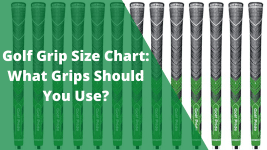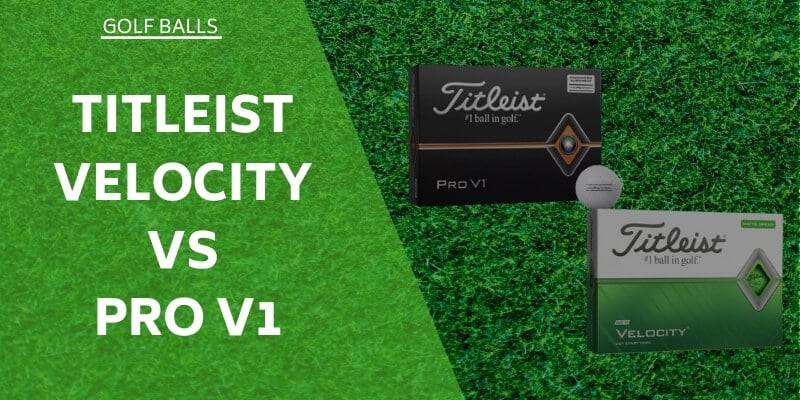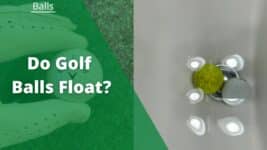
Refurbished golf balls are an excellent option for golfers who want to save money. They look great and perform well with all clubs except wedges. However, they may deteriorate faster than new balls.
My students and I recently tested refurbished balls from GolfBallNut.com (Links Choice) and will share our journey and findings in this article.
Read on as we explain the pros and cons of refurbished golf balls, and how they differ from recycled balls. If you want to save some money on decent balls, keep reading.
Check this out: 8 Best Places to Buy Used Golf Balls
Are Refurbished Balls Right For You?
Golfers who enjoy playing premium golf balls but can not afford to buy them frequently can absolutely benefit from buying good-quality refurbished golf balls. The cost per dozen is usually about 50% cheaper when buying refurbished golf balls versus new ones.
Higher handicap golfers or beginners who tend to lose balls frequently can rest easy that the price per ball with a refurbished one is much more cost-effective.
For example, here’s a comparison between Titleist ProV1 balls:
However, better players may see a slight loss of the benefits of a new premium ball versus a refurbished one. The biggest thing that better players will notice is that over time, the slight loss of benefits will exponentially increase when using refurbished golf balls.
While I understand the pricing models that golf ball manufacturers use for the balls they sell, it is a shame that many better balls are simply too expensive for many golfers.
More from GolfSpan.com: 10 Best Cheap Golf Balls
Why Refurbished Golf Balls Are A Good Option

Let’s break down a few positives of playing refurbished golf balls.
- Save ~50% on Golf Balls: Premium and even mid-range golf balls are so expensive, upwards of $60 per dozen, that refurbished balls offer a much more economical option.
- Fairly Good Performance: If you buy from a reputable company that sells used golf balls, lost golf balls, and especially refurbished golf balls (I like GolfBallNut.com), you will find quality balls that retain much of their original integrity. When properly processed through refurbishing, the ball’s performance often remains very close to that of a new ball in its original condition.
- Better Than Used Balls: A high-grade AAAAA used ball checked for exterior scratches, slight cosmetic blemishes, minor discoloration, or a loss of luster will never match up to a properly refurbished golf ball.
Worth the read: How To Sell Used Golf Balls And Earn Some Extra Cash!
Why Refurbished Golf Balls Are A Bad Option

Let’s break down a few negatives of playing refurbished golf balls.
- They Won’t Last as Long: While much of the original integrity of the ball is still intact, there is no denying they are not new. With that, they will not last as long.
- Performance is Different Than Premium Brands: If you’re a golfer who’s particular about the ball you use, a refurbished ball may not be for you. Many golfers have a specific brand that they prefer, such as Titleist, Srixon, Vice, or Snell. This may be because they notice a difference in how the ball feels when they hit it with their wedges or hybrid clubs. Or how it affects their ability to hit their driver in the fairway. So, if you’re one of these golfers, it’s better to stick with your preferred brand.
Read on to learn about golf balls that are good for the environment: The 3 Best Biodegradable Golf Balls
Our Experience Testing Refurbished vs New Balls
Recently, a few of my students and I tested refurbished balls from Links Choice/GolfBallNut.com versus their new counterparts. We tested these at Wekiva Golf Club in Longwood, FL, home of my golf academy.
Overall, the refurbished balls looked like brand-new balls. They shined like new, almost like some clear coat had been applied. We were all pleased by that initial look.
In terms of performance, below are our takeaways.
- Driver Performance:
Across the board, the refurbished balls were good off the driver. There was little, if any, distance lost, and the ball flight for all was similar to what the new ball produced.
My students, especially, could generate much higher swing and ball speeds than I could, and they were surprised at how well the refurbished balls performed.
However, some thought the refurbished balls felt a little bit heaver than the new balls and wondered if maybe there were extra layers of paint put on.
- Irons Performance:
Once again, the performance of the refurbished versus the new balls with irons was very similar. The only difference was very slight in the amount of spin the refurbished balls had once they hit the green off an iron shot. However, if you hit the sweet spot, the difference was slight.
A constant theme we all discussed during testing was that despite the refurbished balls’ overall great performance, we felt that, over time, this would deteriorate faster than it would with a new ball.
- Wedge Performance:
The one area we all agreed on where there was a slightly more noticeable difference was wedges, from a pitching wedge to a lob wedge. It was not all that bad and much better than with a used ball, but the spin produced on wedge shots and chips around the green was slightly decreased.
- Putter Performance:
The refurbished balls’ performance off the putter face was very good. Some said they felt a bit heavier than the new ball when struck.
What Does It Mean If A Golf Ball Is Refurbished?

A refurbished golf ball is one that has been previously used and then cleaned, repaired, and repainted to improve its appearance and performance. Refurbishing involves removing scuffs and blemishes, restoring the original paint, and sometimes applying a new clear coat for shine. This process makes them look new but may not restore their original performance characteristics.
I recently spoke with Stephan Bayless of Links Choice/GolfBallNut.com about how they turn balls from ponds into high-quality refurbished balls.
We have retrieval teams that recover lost golf balls from ponds and creeks on golf courses all over the Mid-Atlantic. From there, golf balls are brought directly to our processing facility in Central Virginia, where they are thoroughly cleaned to remove any mud or dirt and as much of the player markings as possible.
Our trained staff sorts golf balls by make and model by hand, faster and more accurately than any available machine or robot sorting options. Once sorted, golf balls enter our 5-point quality check and grading. Again, this process is done by hand to ensure authenticity and accuracy.
Our refinished product then removes the outer coatings and branding using our proprietary cleaning process. Yet, as the manufacturer designed, the golf ball’s core construction and geometry of the dimples remain intact.
When Links Choice refurbishes golf balls, we carefully reapply the original manufacturer’s markings. However, in accordance with regulations and to ensure transparency, we also mark each ball with a small “Refinished” stamp to indicate to our customers that despite their looks and performance, the ball is not brand new.
Stephan Bayless of Links Choice/GolfBallNut.com
This process is impressive. As a GM and PGA Golf Professional for the City of Winter Park, FL, and its nine-hole golf course, I used to sell refurbished golf balls, and Links Choice refurbished a dozen packs of higher-end golf balls were a big hit with my customers. More so than the companies I’d worked with locally.
Differences Between Refurbished and Recycled Golf Balls
Unlike refurbished balls, recycled golf balls only undergo a basic cleaning process. Then, they’re graded by their wear and tear and sorted by make and model.
Thus, the chances of imperfections and performance loss are significantly higher with recycled golf balls.
To dispel a few misconceptions about refurbished golf balls, quality refurbished balls will not see markings or paint come off when cleaned and dried with a towel. These balls are durable and will not lose too much after a few of your max drivers strike off the tee.
Unless you are a true baller on the golf links, such as a Tiger, Rory, Rahm, Jason Day, or Adam Scott, you are fine to use refurbished golf balls.
However, it is important to remember that not all sellers of refurbished golf balls are the same, so it is important to do your own research and testing.
FAQ
Can You Use Refurbished Golf Balls in Competitions?
Yes, you can use refurbished golf balls in competitions if they conform to the rules established by governing bodies like the USGA or R&A. However, it’s important to ensure that the refurbishing process has not altered the ball’s fundamental properties, as any modifications that affect performance could make the ball non-conforming.
Are Old Unused Golf Balls Still Good?
Yes, old unused golf balls are generally still good to use if they have been stored properly, away from extreme temperatures and direct sunlight. Over many years, there might be a slight degradation in performance due to the hardening of the core materials, but for recreational play, these balls should perform adequately.
Is There a Difference Between Cheap and Expensive Golf Balls?
Expensive golf balls often use advanced materials such as urethane in the cover, which provides a softer feel and greater spin control. The cores may contain materials like tungsten-infused rubber to help lower the spin on long shots while maximizing energy transfer for greater distance. These balls typically feature multi-layer constructions that enhance feel and performance across various shot types.
Brendon is Class A PGA Professional and founded Little Linksters, LLC, and its nonprofit arm, the Little Linksters Association for Junior Golf Development. He won 25+ prestigious industry honors, including the 2017 PGA National Youth Player Development Award. He graduated from the PGA of America Management Program and has a handicap index of 7.8.
He has played golf for over 40 years and currently plays twice a month at the Eagle Dunes Golf Club near Sorrento, Florida. He loves Srixon clubs and plays a ZX5 driver with Z 585 irons. He's written over 60 articles on GolfSpan and specializes in sharing tips to improve your golf game. You can connect with Brendon at LinkedIn, X, IG, FB, his website, or BrendonElliott@pga.com.







